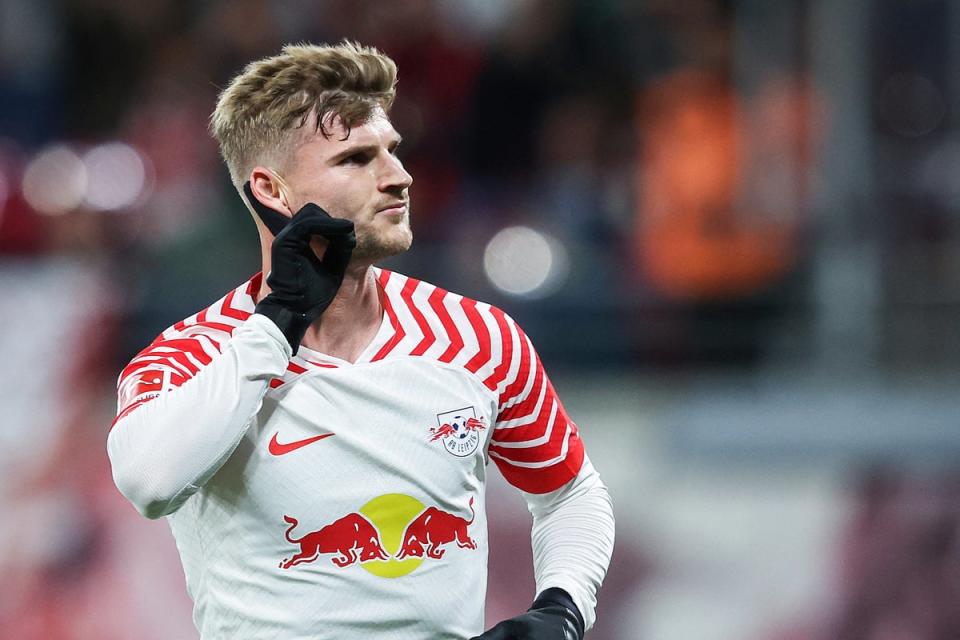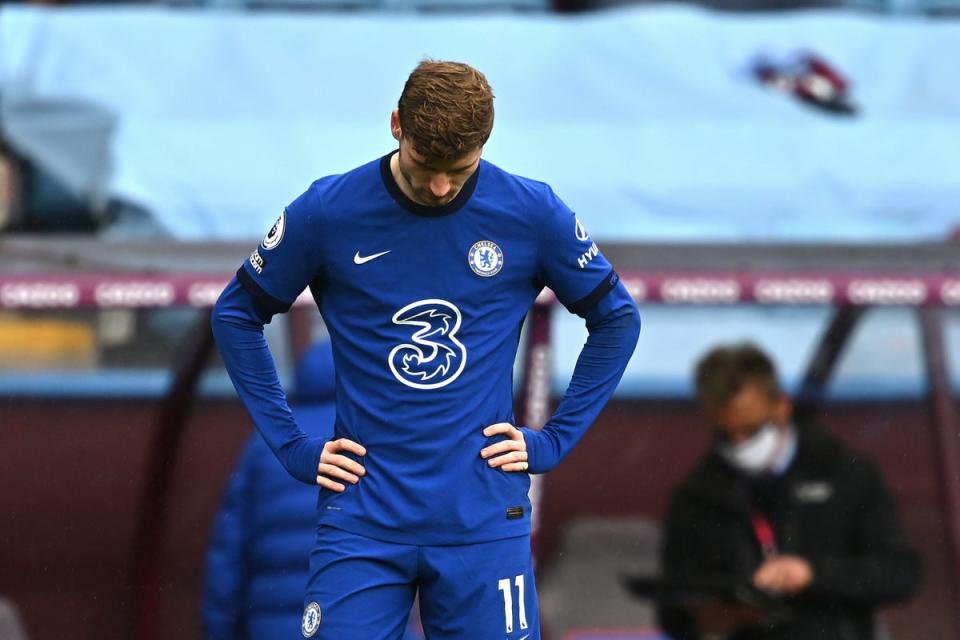Timo Werner to Tottenham: Why risk-free deal is perfect for Spurs despite Chelsea failure

No signing is ever entirely risk-free, but in landing Timo Werner on a six-month deal from RB Leipzig, Tottenham have secured a deal with no obvious downsides.
Werner will join Spurs on loan until the end of the season with a point to prove and both a permanent move and a place in Germany’s European Championship squad on the line.
He will provide much-needed cover and competition in Ange Postecoglou’s stretched squad, which will be without Ivan Perisic for the remainder of the season and captain Heung-min Son until likely mid-February, assuming South Korea go deep at the Asian Cup.
If Werner does well and gets back to somewhere near the player of his first spell at Leipzig, Spurs have an option to sign him permanently for around €15-20million (£13-17m) in the summer — a snip in today’s market.
Chelsea paid three times that amount to sign Werner from Leipzig in 2020, while Liverpool were also competing for his signature.
If Werner fails to make a real impression back in London, however, he can be returned to Leipzig at the end of the season, allowing Spurs to pursue other options in a far more favourable landscape for big transfers.
Even if Werner is underwhelming, he is likely to be a more effective option from the bench than Bryan Gil or youngster Jamie Donley for the rest of the campaign.

There are unavoidable doubts arising from the 27-year-old’s spell at Chelsea, but it is not hard to understand why Postecoglou likes Werner. The Australian has said he wants versatile players across his front three, and Werner is capable of playing through the middle or on either flank.
The German is quick, direct and an excellent presser, while also tactically-astute enough to follow Postecoglou’s instructions to the letter. When James Maddison is fit again, Spurs will have another speedy runner to stretch the game ahead of the England No10 and get on the end of his passes.
Postecoglou has also made a point of talking up the character of his signings, saying good people are as important as good players and emphasising that while there is relatively little difference in quality between many elite footballers, a top character can make a huge difference.
For all his difficulties at Stamford Bridge, Werner never rocked the boat and he is considered a positive team player who will fit the ethos of Postecoglou’s project. He will also surely benefit from playing for a coach as positive as Postecoglou after struggling under Frank Lampard and Thomas Tuchel at Chelsea.

There can, of course, be no getting away from Werner’s record in west London, where he failed to justify his fee and looked like a player lacking the finesse and end product to be a success at a leading Premier League club.
In the end, he became a punchline at Stamford Bridge — perennially hapless and offside — although he is not the first and is unlikely to be the last high-profile signing to struggle to make an impression at the club; see also Andriy Shevchenko, Fernando Torres, Alexandre Pato, Radamel Falcao, Gonzalo Higuain, Alvaro Morata and Romelu Lukaku.
While Werner fits the profile of a Postecoglou player, there is also a case that the last thing Spurs need is another forward who is mobile, hard-working but short of end product.
The promising but raw Brennan Johnson is yet to show the necessary killer instinct in the final third, while Richarlison has five goals in as many League games but has still been wasteful, notably in the recent 4-2 defeat at Brighton. Dejan Kulusevski is a different type of player, but Postecoglou has said the Swede needs to score more goals, too.
"For Spurs the deal feels like a canny piece of opportunism, with more upside than down"
Until Son is back, there is an argument that Werner only provides more of the same to an attack which is not short of pace or industry, but lacks conviction and cutting edge.
There are also supporters who will argue that Werner is a classic Spurs signing under chairman Daniel Levy, a Chelsea reject who is cheap and underwhelming, and coming in at a time when the club should be capitalising on its strong position in the League by making a statement in the transfer market.
That view, though, ignores the realities of the January window, which is always a difficult time for any club to really upgrade its squad.
Spurs were always going to have to be creative this month, and while Werner personally has a lot to lose — he will surely not get another chance at a major Premier League club if this loan goes badly — for Spurs the deal feels like a canny piece of opportunism, with more upside than down.
